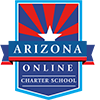People love to celebrate … everything. On January 18, Thesaurus Day is a celebration of the power of words. This date is the birthdate of Peter Mark Roget, who is best known for creating Roget’s Thesaurus. His name is so synonymous with this type of reference book that the publisher trademarked it. The original version of his Thesaurus of English Words and Phrases, Classified, and Arranged so as to Facilitate the Expression of Ideas was published in 1852 and contained 15,000 words; it has grown with each subsequent version. Roget’s was also the first book of this type that arranged synonymies in topical order, and it is this feature that many credit with the success of his thesaurus over others.

Purpose
A thesaurus is a book filled with words. Like a dictionary, the words appear alphabetically, but a thesaurus does not include definitions. It lists synonyms, or words with similar meanings, for every word listed within it. Some thesauri even include antonyms (words with opposite meanings). When a word can be used as more than one part of speech (i.e., noun, verb, adjective, etc.), synonyms for all versions of the word will appear. Typically, entries will also include suggestions for more possible alternate words.
Thesauri can not only help a writer avoid repetition of the same words and phrases throughout their work, it can also help them find a more precise and applicable word for a given situation.
Use
Digital and hard copy thesauri can be great ways to expand vocabulary, especially for children. While most grade schoolers are still dealing with the weekly spelling tests, they are less likely to have strict vocabulary components, like definitions, pronunciations, or synonyms and antonyms (which parents might recall from their school days). A thesaurus can be a fun way to introduce them to new words and phrases while also showing them the scope and connected nature of language, as well as the ways it has grown and changed through the generations.
Reminders
One detail to always remember when using a thesaurus—make sure you know the meaning of the word before you use it as a substitution. A good rule of thumb is to always have a dictionary handy when using a thesaurus; look up other word choices, even if you think you know them. They could be more specific or general than you might realize.



